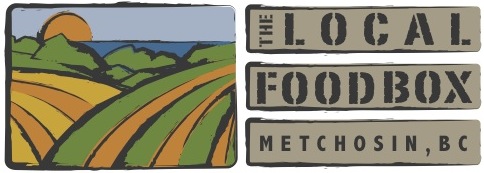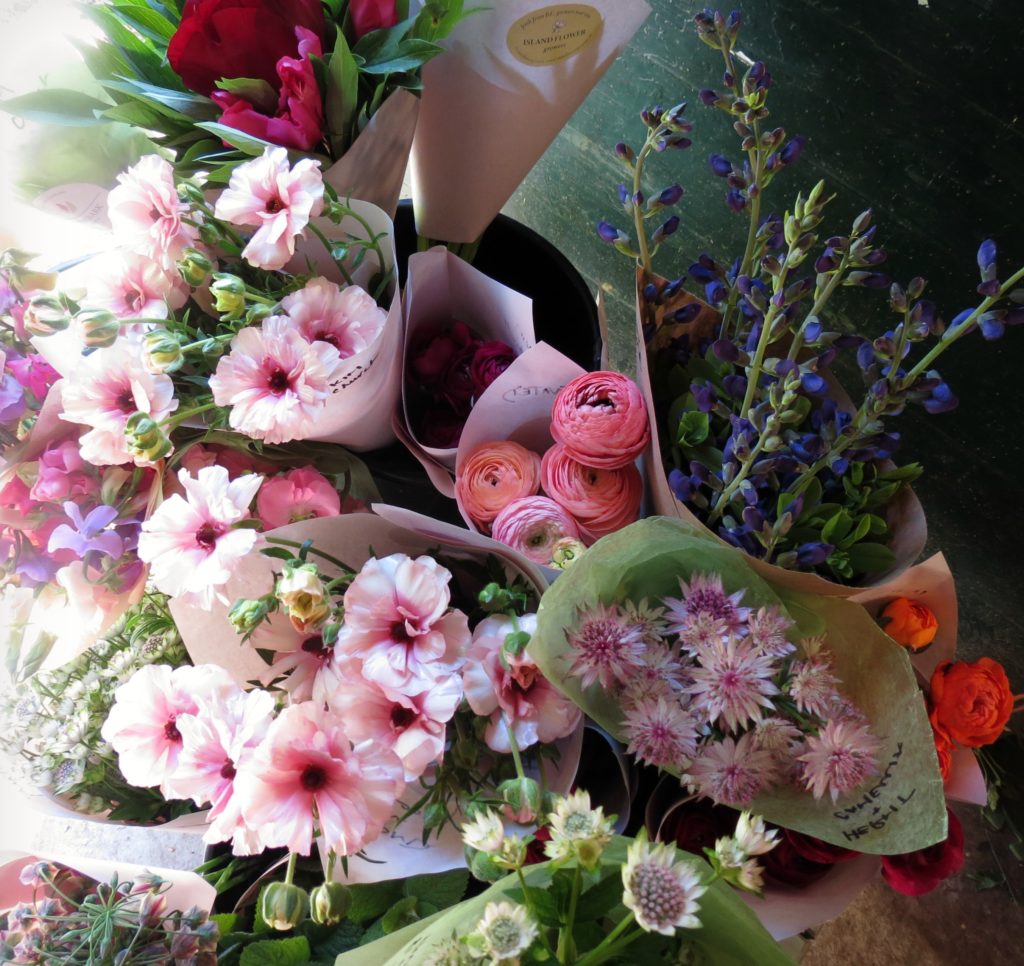It’s hard to believe that we are already entering week 4 of The Local Food Box (LFB) Program, while 3 months ago we were planning on not farming in 2020. Thanks to a great farm team as well as ongoing support from LFB members, we’ve had a super busy but successful start of the season. We are writing to provide a brief pick-up update, tell you about how you can share recipes with other LFB members, and introduce local flower farmer Lorna Jackson from Ninebark Farm, and honey producer Derek Wulff from Wind Weaver Farm.
Pick-up update
We would first like to thank all members for their understanding and patience this season. We are aware that with the new social distancing measures, the pick-ups have been a bit longer than usual. From now on, we will no longer be placing your produce in a box before handing it over. Instead, we will revert back to our old system, where members grab the produce themselves. We will continue to manage the swap bin and hand over meats, eggs and honey. We will also place a hand sanitizer station before members collect the produce. To minimize contact points, we ask that anyone picking up their items please try to only touch what they are taking.
Sharing recipes
A great initiative from a dear friend and LFB member: We now have a Wind Whipped Farm Fans page on Facebook! This page is for LFB members to share the great recipes they are making. Ask to join the group here, and let us know what’s for dinner tonight 🙂
Ninebark Farm and the Island Flower Growers Co-operative
The bi-weekly flower bouquets available through the LFB Program are grown and designed by Lorna Jackson from Ninebark Farm. In January, Ninebark Farm became a founding member of Island Flower Growers Co-operative, a producer-owned co-operative of cut flower growers on Vancouver Island and the Gulf Islands.
The Co-op advocates for flower farming’s significant role in stewarding our region’s environmental and community health by:
- Operating a vibrant wholesale market featuring fresh, on-trend and specialty product grown by local growers for local florists and designers;
- Helping flower lovers understand the benefits of local, sustainably grown and seasonal flowers instead of imported, chemically-treated blooms;
- Creating opportunities for flower growers to bolster their experience, improve their growing practices, contribute to their farms’ health, and access new markets;
- Advocating for seasonal and sustainable growing practices.
Flower farmers plan and plant many of their crops in the fall and winter to prepare for summer weddings and events they’ve booked for the following year. So the 2020 flower season has already been full of surprises! Weddings are postponed, most florists’ shops closed in March, and graduations and celebrations have been cancelled. But the fields are over-flowing with gorgeous blooms, and the support for local flowers has been incredible at such a challenging time for growers!
It’s not too late to add a flower bouquet subscription onto your LFB membership, we can pro-rate it for the remainder of the season.
Wind Weaver Farm – Pure Vancouver Island Wildflower Honey
The monthly honey available through the LFB Program is from Derek Wulff, a local bee rancher here in Metchosin, leader of the Metchosin Bee Ranchers group, and toy designer (yes, they go together!).
The bees that make this honey are raised in Metchosin and in the summer go on vacation in the mountains around Jordan River. Darker honey is from local blackberry, and lighter honey is from fireweed. Wind Weaver honey is usually a creative mix of the two crops.
Honey naturally crystallizes when it gets cool, especially if there is a bit of pollen in it. Sometimes, depending on the flowers the nectar comes from, it will be creamed – with a similar, but smaller crystal. Derek lightly filters the honey so there are trace amounts of pollen, which is good for you, and may be a natural way to improve your resistance to pollen allergies. If it crystallizes, just warm it slowly.
Derek uses organic farming principles, so no chemicals or antibiotics are used. You can return the jars (clean please!) so they can be sterilized and used again.



No comments yet.